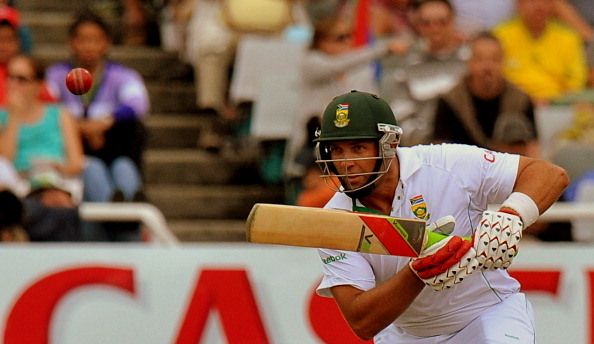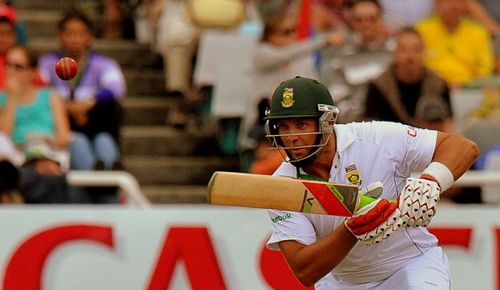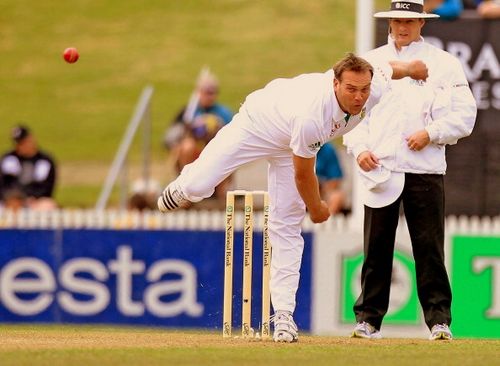
Jacques Kallis: A spent force in international cricket?

Jacques Kallis – A class act
As a youngster, Jacques Kallis was one of my favourite cricketers. And not exactly because he could play well, but because his name was very intriguing. Over the course of years, the intrigue surrounding the name – bearing French and Latin etymological origins – waned away but he still remained a favourite. This time though, entirely because of his game and what he represented to the sport.
A lot however has changed in the intervening years between then and now. I have grown up with different sets of priorities than choosing favourites because of their names, cricket has evolved with different dynamics and what not and Jacques Kallis too has matured; his game in tune with these changed dynamics of the sport. For most parts, that is.
As time has gone by on the career on Jacques Kallis, his indispensability to the South African team has started to get reduced. His judicious and profound cricketing knowledge still remains undoubted, but a lot has changed for the South African cricket with regard to expectations from their most illustrious cricketing talent.
By most accounts presently, the South African team doesn’t seem to need Jacques Kallis to come out and play lone innings. The team’s construct has changed considerably such that it has started to rely and look up to players other than Kallis, more frequently. Statistically, he may be the guy with the most numbers in the entirety of the South African squad, but there’s no denying that South Africa have started to look beyond Kallis as far as their cricketing future is concerned.
Maybe that’s why Jacques Kallis’ comparatively paltry contribution – with both bat and ball – didn’t perturb the South Africans much in the recently concluded ODI series against India. In the first two ODIs, Kallis made just 20 runs, a fraction of what his younger compatriot Quinton de Kock contributed to the South African innings. Likewise, in the lone match where he was handed the ball, in the first ODI at Johannesburg, his figures were pretty ordinary fetching him one wicket at the cost of 20-runs.
This transition of Jacques Kallis from being the most important component of his country’s cricket team to being just another cog making up the squad, comes less than a year of his being inducted into the Wisden Almanac for 2013. Though, Kallis’ prolonged leave of absence from active cricket on account of injuries has undeniably been the cause of the dip in his performances, these haven’t however stopped impacting decisions about his inclusion into the South African playing squad.
It’s an irony considering that the 38-year old is the only player who stands a chance at seriously overtaking a few of Sachin Tendulkar’s records. And it’s in this ironic situation, that the underrated existence of Kallis strikes even more.
At a time when the sport looks towards flamboyance and external brashness of players, it’s as if the quiet and muted brilliance of Kallis that formed the glue for the South Africans has started to get inconsequential except of occasional mentions, here and there. The consistency that Kallis stood for, with his playing quirks, has started to pale in the wake of splashy innings’ construction by the younger cricketing generation of South Africans who take immense pleasure in plundering boundaries and sixes with increased frequency.

Jacques Kallis – Do South Africa need him anymore?
And while there remain those few select cricketers whose command over the vintage style of cricketing play, the distinctiveness of these players is still totally different from what Kallis embodied to the South African cricketing fraternity, not so long ago. And just like that, he’s started to attract criticisms as well.
Kallis’ style of play has started to grate with snide comments following about his so-called self-centred attitude during match-time at crucial junctures. He’s been long forgotten to be the guy who was the team’s lynchpin during the time when the whole cricketing world stared at South Africa following the country’s upheaval after the infamous match fixing scandal saga of the early 2000s.
Such unwarranted critiquing for a player who never sought to play for personal glories and was amongst those rarefied breed of cricketers who was content to be a team-member rather than its captain is yet another manifestation of the way the sport and its perceiving have changed, leaving no recourse except to say that the era of Kallis’ prime has been long left behind.
The grown-up fan of Jacques Kallis that I am, too believes this along with the fact that when Jacques Kallis retires, he would go down as one of the best cricketers of all time – despite all cynicism surrounding his playing skills. But that youngster that still resides somewhere in me wants more time to hold on to her past especially more so now, considering that very little of that past remains to be enjoyed in the present.